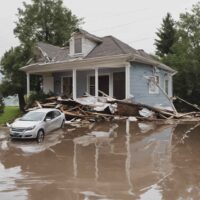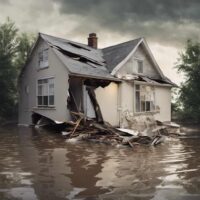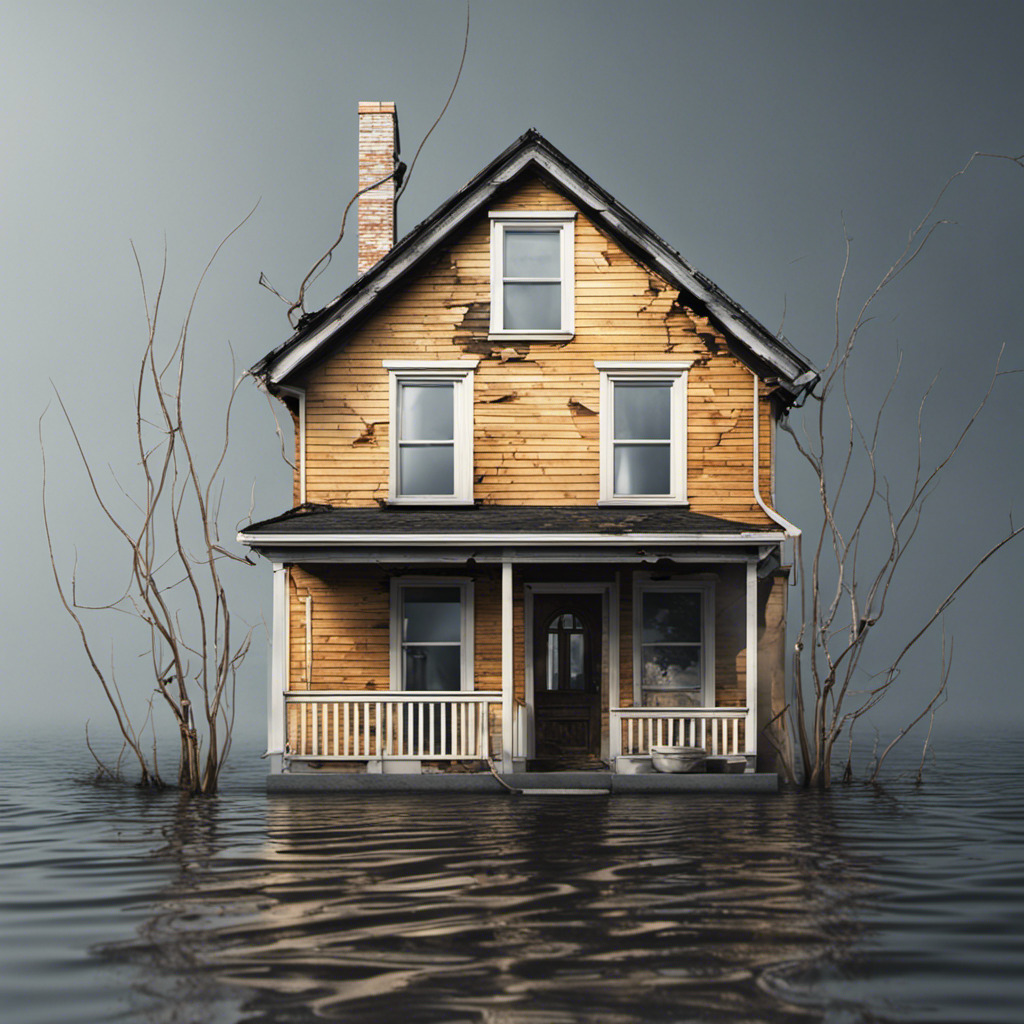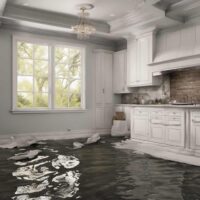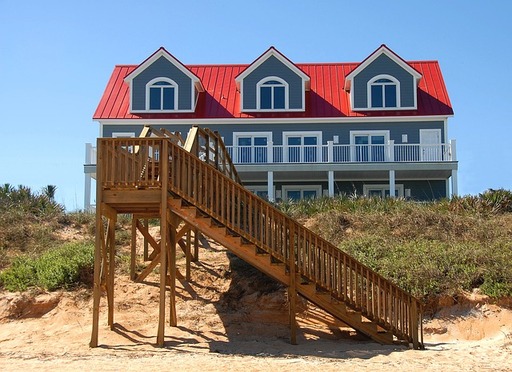
Vacation rentals offer a delightful escape for travelers, providing a home away from home. However, as a property owner, ensuring the well-being of your investment goes beyond providing cozy accommodations. One of the critical aspects of property management is safeguarding against water damage. From leaky faucets to burst pipes, water-related issues can turn a dream vacation into a nightmare.
In this comprehensive guide, we’ll explore practical steps to prevent water damage in your vacation rental property. Let’s embark on a journey to preserve the tranquility and integrity of your space.
See also our post on Cleaning Up After Water Damage: A Comprehensive Guide
Understanding Potential Sources of Water Damage
Roof and Ceiling Leaks
Inspect your vacation rental’s roof regularly for any signs of damage, such as missing shingles or leaks. Leaks can lead to ceiling damage and affect the overall structure of the property.
Plumbing Failures
Regularly check plumbing fixtures, including faucets, pipes, and water heaters, for leaks or signs of corrosion. Addressing plumbing issues promptly can prevent major water damage.
Appliance Malfunctions
Inspect and maintain appliances like dishwashers, washing machines, and refrigerators. Malfunctions can lead to water leaks, causing damage to floors and adjacent structures.
Poor Drainage
Ensure proper drainage around the property. Improper grading or clogged gutters can lead to water pooling, potentially causing foundation damage and basement flooding.
Exterior Water Intrusion
Regularly inspect windows, doors, and exterior walls for gaps or cracks that may allow water to enter. Proper sealing and maintenance are crucial to preventing water intrusion.
Routine Maintenance and Inspection
Regular Property Inspections
Conduct thorough inspections of your vacation rental property at least twice a year. Look for any signs of water damage, including stains, mold, or unusual odors.
Roof Maintenance
Schedule professional roof inspections to identify and address any issues promptly. Keep gutters clean to ensure proper water drainage and prevent water from seeping into the property.
Plumbing Checks
Regularly inspect plumbing fixtures, checking for leaks, loose connections, or signs of water damage. Replace worn-out hoses and tighten connections to prevent potential issues.
Appliance Care
Follow manufacturer guidelines for appliance maintenance. Regularly check for leaks, ensure proper connections, and replace any faulty parts promptly to prevent water-related malfunctions.
Exterior Sealing
Periodically inspect and reseal windows, doors, and any exterior openings. Proper sealing acts as a barrier against water intrusion, safeguarding the interior of your vacation rental.
See also our post on A Comprehensive Water Damage Restoration Services Checklist
Preparing for Vacancies
Water Shut-off Procedures
Clearly communicate water shut-off procedures to guests before their arrival. Provide instructions on how to turn off water in case of emergencies, preventing potential damage during vacant periods.
Winterization
If your vacation rental is in a colder climate, take steps to winterize the property. This includes draining and shutting off water to prevent frozen pipes, which can lead to bursts.
Regular HVAC Maintenance
Ensure the heating, ventilation, and air conditioning (HVAC) system is well-maintained. Regular servicing prevents issues like condensation or leaks that may result in water damage.
Secure Outdoor Areas
Before guests arrive, secure outdoor areas by checking for proper drainage and covering exposed items. This helps prevent water accumulation and potential damage during inclement weather.
Prompt Response to Guest Reports
Encourage guests to report any water-related issues promptly. Establish a system for quick response and resolution to prevent minor problems from escalating.
Water Detection and Monitoring
Install Water Sensors
Place water sensors in vulnerable areas such as basements, bathrooms, and kitchens. These devices can detect leaks early, allowing for swift intervention before significant damage occurs.
Smart Water Monitoring Systems
Consider investing in smart water monitoring systems that provide real-time alerts to your smartphone. These systems can track water usage patterns and detect anomalies indicative of leaks.
Regularly Check Water Meters
Monitor water meters for unexpected spikes in usage, which could signal a leak. Regular checks help identify issues early and prevent excessive water damage.
Utilize Smart Home Technology
Explore smart home technology that integrates water monitoring into your overall home automation system. This enables centralized control and monitoring of various aspects of your vacation rental.
Conduct Periodic System Tests
Regularly test water detection systems and sensors to ensure they are in proper working order. Address any malfunctions promptly to maintain the effectiveness of your preventive measures.
See also our post on Water Damage Restoration Guide: How to Restore Property After a Disaster
Educating Guests on Water Conservation
Provide Clear Guidelines
Communicate water conservation guidelines to guests, encouraging responsible water usage during their stay. Simple instructions can go a long way in preventing accidental damage.
Install Water-Efficient Fixtures
Upgrade to water-efficient fixtures, such as low-flow toilets and aerated faucets. These not only contribute to conservation but also reduce the risk of water-related incidents.
Informing About Local Conditions
If your vacation rental is in an area prone to specific weather conditions, inform guests about potential risks and precautions. This empowers them to act responsibly in preventing water damage.
Promoting Conscious Habits
Encourage guests to report any water-related issues promptly. Promote a culture of responsibility and cooperation to ensure a collective effort in maintaining the property.
Include Water Conservation Tips in Welcome Materials
Incorporate water conservation tips into welcome materials, reinforcing the importance of mindful water usage throughout the guest’s stay.
Insurance Considerations
Evaluate Insurance Coverage
Regularly review your property insurance coverage to ensure it adequately addresses potential water damage scenarios. Make adjustments as needed to provide comprehensive protection.
Flood Insurance
If your vacation rental is in a flood-prone area, consider obtaining flood insurance. Standard property insurance may not cover flood damage, making additional coverage essential.
Documenting Property Conditions
Keep detailed records of the property’s condition, including photographs, before and after each guest’s stay. This documentation can be valuable in the event of an insurance claim.
Prompt Reporting of Incidents
In the event of water damage, promptly report incidents to your insurance provider. Adhering to reporting timelines is crucial for the successful processing of claims.
Regularly Update Insurance Information
Ensure that your insurance provider has up-to-date information about your vacation rental, including any modifications or improvements. This guarantees accurate coverage and reduces the risk of disputes.
Emergency Preparedness
Emergency Contact Information
Provide guests with a list of emergency contacts, including local plumbing services and emergency response numbers. Quick access to help can mitigate potential water damage.
Emergency Shut-off Procedures
Clearly outline emergency shut-off procedures for water, electricity, and gas. Inform guests about the location of shut-off valves and switches to expedite response in critical situations.
Create an Emergency Kit
Prepare an emergency kit that includes basic tools, sealing materials, and contact information for emergency services. Having essential items on hand can expedite response during unforeseen events.
Establish Communication Protocols
Establish clear communication protocols for emergencies. Ensure guests know how to reach you or your designated property manager in case of urgent issues requiring immediate attention.
Regular Emergency Drills
Conduct regular emergency drills with your property management team or caretaker. Practice response procedures to enhance efficiency in handling unexpected situations.
See also our post on 15 Important Water Damage Restoration Tips
Conclusion
When it comes to managing vacation rental properties, preventing water damage is more than just a chore—it is a commitment to maintaining your guests’ safety and enjoyment. This comprehensive guide has given you the tools you need to protect your investment, from regular maintenance to embracing technological solutions.
You can create a vacation haven that not only captivates guests but also withstands the challenges of water damage by being proactive, educating guests, and being vigilant. Let this guide be your travel companion to ensure that every stay in your vacation rental is a seamless and worry-free experience for you and your guests.

